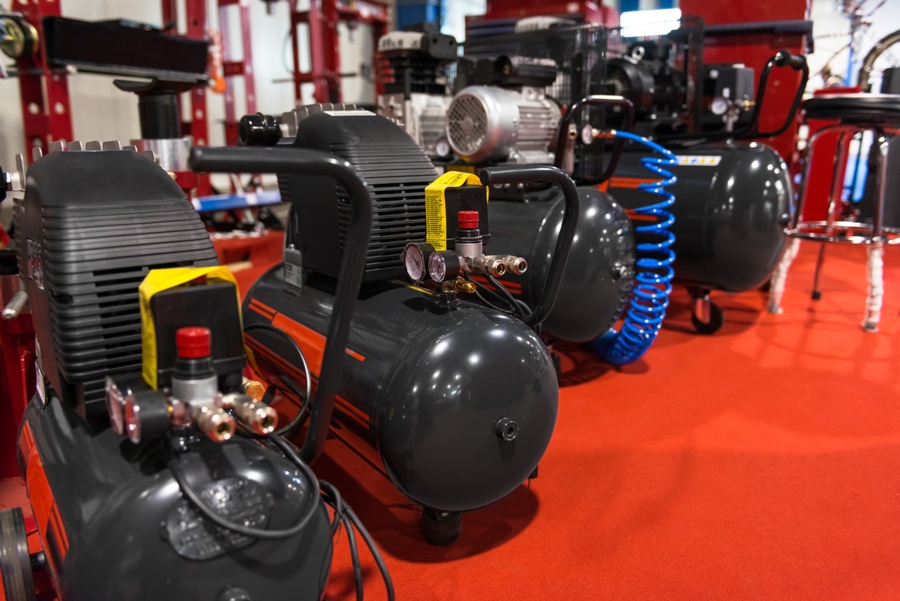Air compressors convert power, such as from gasoline or electricity, into potential or stored energy in the form of pressurized air. They are used in part of a complete air system. Knowing the different types of air compressors will save you a lot of money and effort in the long run.

Each type of air compressor has its own pros and cons. These units can differ in terms of their capacity, cost as well as maintenance needs. Other considerations include the operational noise level and the outlet temperature. Choosing the right one to rent depends on your needs and the situation you will use them in.
- Reciprocating piston compressor
There are three basic types of air compressors. The reciprocating piston compressor uses a piston in the cylinder to press out the air. The piston or a rubber membrane moves back-and-forth.
Piston compressors usually come with 1 HP to 50 HP. They are popularly used in a wide variety of applications, such as in hand-tools, small paint jobs, and cleaning dust.
This type of compressor is popular because it’s relatively cheap and it’s suitable for high pressures. It’s also one of the types that’s easiest to use and understand. On the downside, models are usually very noisy, there’s high outlet temperature, and high oil content in the air piping.
- Rotary screw air compressor
The rotary screw air compressor uses a rotating spiral screw to gradually compress the air. Rotary screw and centrifugal compressors have 100HP and above.
Your rented rotary screw air compressor can be oil-injected or oil-free. The more commonly used on is oil-injected type, which is cheaper than the oil-free compressors.
This type of compressor is easy to maintain and operate. They provide smooth, pulse-free air output, without the loud noise, and with relatively lower end temperature of compressed air. You can also expect more in terms of energy and power. On the downside, they are more expensive than piston compressors, and there is minimal air use.
- Centrifugal compressor
The centrifugal compressor uses a rotating impeller to transmit the air pulse. These compressors produce high-pressure discharge, using rotations at higher speeds compared to other types of compressors.
This type of compressor is designed for higher capacity, and for continuous flow applications. They are also oil free by design. They are more compact and lower maintenance. On the downside, the compressed air can get very hot, and it is relatively expensive.
Do you know which type of compressor is best for your needs? We’d be happy to give you some advice. Call us today!



